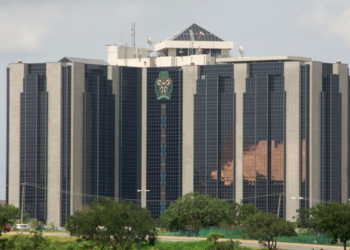Manufacturers in Nigeria expressed a lack of confidence in the nation’s economic outlook in August 2024.
This is according to the latest Business Expectations Survey (BES) conducted by the Central Bank of Nigeria (CBN).
The survey, which involved 1,600 business enterprises, revealed that while many sectors were optimistic about the economy, the manufacturing sector was notably pessimistic.
The report highlights that the manufacturing sector posted a negative confidence index of -5.5 points, reflecting ongoing concerns about the current business climate.
Mixed sentiments towards Nigeria’s economy
According to the BES report, the sectors, such as manufacturing, construction, mining, and utilities, had mixed sentiments.
Manufacturing and construction both showed negative indices of -5.5 and -10.0 points, respectively, signaling a significant lack of confidence.
However, sectors such as mining, quarrying, and electricity displayed optimism, with an index of 30.4 points, highlighting the varied sentiments within sectors.
The report read: “Business sentiment for the Agriculture and Services Sectors was optimistic in the current month, but the Industry Sector was pessimistic. However, all the sectors expressed optimism for the next month. The index of optimism in the Agricultural and Services Sectors were 5.2 and 1.2 points respectively, while that of the Industry Sector stood at -3.9 points.
“For the subsectors, Mining, Quarrying, Electricity, Gas & Water Supply; Non-Market; Market showed optimism at 30.4, 2.7 and 0.7 points, respectively, while Construction and Manufacturing Sectors were pessimistic at -10.0 and -5.5 points, respectively.”
The negative sentiment within the manufacturing sector can be attributed to several challenges, with the BES report identifying insecurity, high interest rates, and multiple taxation as the primary constraints to business activity.
The survey also noted that an unfavorable economic climate and insufficient power supply are contributing to the businesses’ struggles in the country.
These factors have made it difficult for manufacturers to maintain operations at optimal levels, eroding confidence in both current business condition.
Expansion and Employment Outlook
Despite the gloomy outlook for the manufacturing sector in August, businesses across all sectors expressed optimism about their expansion plans for September 2024. The mining and quarrying sector showed the highest potential for growth, with an index of 66.7%, while manufacturing indicated a moderate interest in expansion with an index of 47.9%. This positive outlook reflects the anticipated growth within several industries, including agriculture, market services, and non-market services.
The employment outlook for September 2024 was also positive across all sectors, according to the survey. The mining and quarrying sector again held the highest potential for job creation, with an index of 13.0 points, followed by the construction sector at 10.0 points, agriculture at 9.9 points, and manufacturing at 8.3 points. This indicates that although the manufacturing sector currently faces significant challenges, there is potential for job creation and expansion in the near future.
Optimism for September
Despite the pessimistic outlook for August, there is a glimmer of hope as manufacturers expressed cautious optimism for the upcoming months. The manufacturing sector is expected to see a slight improvement in confidence for September, with a projected index of 7.7 points. This anticipated improvement signals a potential rebound in business activity as companies look to adjust to the challenging operating environment.
The overall business outlook for the next three and six months also remains positive across most sectors. This optimism is driven by expectations of improved market conditions, as businesses anticipate better operating conditions moving forward.
What you should know
- Nairametrics earlier reported that Nigeria’s manufacturing sector’s contribution to the Gross Domestic Product (GDP) witnessed a significant contraction over the past two quarters, reflecting a decline of 20.95% from the end of 2023 to the second quarter of 2024.
- This decline over the first half of 2024 highlights the sector’s vulnerabilities, particularly in the face of ongoing economic and infrastructural challenges.
- Despite these challenges, the sector has remained a major contributor to government taxes.
- The Director-General of Manufacturers Association of Nigeria (MAN) , Mr. Segun Ajayi-Kadir, recently criticized the multiple and high rates of taxes and levies imposed by the three tiers of government and their agencies.
- Ajayi-Kadir noted that the challenges facing the manufacturing sector, particularly due to the current macroeconomic conditions, are exacerbated by the ongoing foreign exchange volatility and high electricity tariffs.
- He also called on manufacturers to support the implementation of the recommendations from the Presidential Committee on Fiscal Policy and Tax Reforms.



















